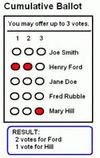Lecture Flashcards
(222 cards)
What is a “Certificate of Formation” (TBOC 1.002(6))?
The articles of incorporation submitted to the Secretary of State.
How many different types of corporations are there (TBOC 1.002(14))?
- For-Profit
- Non-Profit
- Professional Organization
What is an S-Corp?
A For-Profit corporation as defined in Chapter S of the Federal Tax Code.
- Flow through taxation
- Owners/Shareholders limited to less than 100
- Single class of shares
What is a C-Corp?
A For-Profit corporation as defined in Chapter C of the Federal Tax Code.
- Double Taxation
- No limit on number of owners
- Multiple Share classes
What is the difference in taxation for an S and C-Corp?
- S-Corp does not tax profits of the corporation, only on the distributions to the owners/shareholders.
- C-Corp taxes the corporate earnings and the distributions to the owners/shareholders
Who creates a corporation?
An “Incorporator, Agent, Organizer” files the articles of incorporation (TBOC 3.004).
- Does not have to be an owner
- Needs to be able to receive process of service for the corporation
- Must have the capacity to contract to create a corporation

What elements must the Certificate of Incorporation include (TBOC 3.005)?
- Name of the filing entity to be formed
- Type of entity to be formed
- Purpose of the entity
- Duration (if less than perpetual)
- Street address of registered agent
- Names and addresses of initial board of directors (at least 1 required in Texas)
- Number of authorized shares
- Par Value or No Par value of the shares
- Name and address of organizer
- Effectiveness of filing election (Texas)
What are the penalties in Texas for knowingly filing a false Certificate of Incorporation?
- Misdemeanor if the person knows that the filing is materially false
- State Felony if the person intends to harm or defraud another.
What is a closely held company?

A company whose shares are not publically traded.
How is the corporation structured?
- Ownership (Own the Business)
- Shareholders
- Management (Running the Business)
- Board of Directors
- Officers
- Managers
- Employees
- Managers
- Officers
- Board of Directors
Who are Directors?

Directors are elected (hired) by the shareholders to provide management oversight for the running of the company. (TBOC 1.001(35)(a))
- Individual directors are powerless to act, all actions must be board actions.
Who are Officers?

Officers (CEO, COO, etc.) are hired by the board to manage the ongoing operations of the company and carry out the strategic direction of the board (TBOC 1.001(61)).
- Individual Officers can bind the corporation to agreements, etc.
Can a person be an Owner, Director, and Officer?
Yes

What “powers” does a corporation have?
Except as limited by the code, a domestic entity has the same powers as an individual to take action necessary or convenient to carry out its business and
affairs (TBOC 2.101(…)).
- Run the business
- Defend the business
- Grow the business
Can the “Powers” of the corporation be limited in the “Certificate of Formation”?
NO ! (TBOC 20.002)
- A corporations powers are provided by statute, not by the Certificate.
Can the “Authority” of the corporation (or officers) be limited by the “Certificate of Incorporation”?
YES (TBOC 20.002)
Can the Corporation avoid liability by using as a defense that the acts were beyond the “Certificate of Incorporation”?
- Stated Purpose - No (TBOC 20.002(b)(1))
- Inconsistent with limitation of authority - No (TBOC 20.002(b)(2))
- Lack of capacity - No (TBOC 20.002(a))
Can someone suing the Corporation assert the claim of exceeding the purpose or authority of the “certificate of incorporation”?
- Shareholder - Yes (TBOC 20.002(c)(1))
- Corporation against an Officer/Director - Yes (TBOC 20.002(c)(2))
- State against Corporation/Officer/Director - Yes (TBOC 20.002(c)(3)
What does “de jure” mean?
By right of law
- A corporation founded by legal right
When does a corporation exist in Texas?

- When an certificate of incorporation has been delivered to the SOS
- The SOS determines that the “Articles” conform to the statutes
- Files the Certificate - the Magic Happens A Corporation is Born
- Provides an Acknowledgement
TBOC 4.001, and 4.002
What is a “de Facto” corporation?
A corporation that is formed by the actions of the parties, but fails to meet the legal requirements of incorporation.
How can a “de Facto” corporation be recognized?

- A law of incorporation exists within the state
- An attempt was made to organize the corporation
- Must be a “colourable” attempt (failing to timely file not colourable)
- Operated as corporate entity after attempt
- Hausman and TBOC 3.001(d)
Is the acknowledgement from the SOS binding?
No, the acknowledge of filing is not a “Certificate of Incorporation”, but it can be submitted as evidence of a “de Facto” corporation. TBOC 3.001(d)
What is Estoppel?

- A statement made by someone signifying that a corporation had been formed
- Sellling shares is a statement
- Another person reasonably relied on the statement
- To their detriment
The person making the statement is estopped from denying the corporation, only works for contracts not tort actions






































